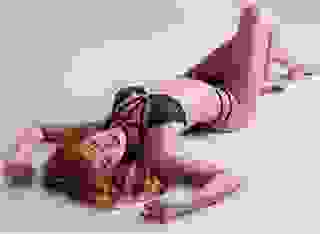- How To
- More on Haiku: Anthropomorphism
Note: You can change font size, font face, and turn on dark mode by clicking the "A" icon tab in the Story Info Box.
You can temporarily switch back to a Classic Literotica® experience during our ongoing public Beta testing. Please consider leaving feedback on issues you experience or suggest improvements.
Click hereAnthropomorphism. That's quite a word. The first time I saw it, I wondered if it was contagious. When I realized it was a magazine editor who used the word referring to some of my haiku, I quickly looked it up in the dictionary. The definition read: an interpretation of what is not human or personal in terms of human or personal characteristics: Humanization.
Since the magazine accepted none of my haiku, I quickly realized anthropomorphism was not good in haiku. While anthropomorphism (big brother to personification) can be interesting and artistic in some poetry and prose, most haiku editors avoid it.
rain heavy on leaves
already bent boughs strain more
and trees cry their pain
The trees didn't cry, and watching them, try as I might, I never heard them cry. They can't cry: they are trees! As poetic as the thought of crying trees may be, my job as a haiku student is to impart an observation without applying my own emotion or judgement to the haiku. Perhaps a better way to write the haiku would be:
heavy rains
boughs bend in the wet
trees lean
Yeah, not a particularly good haiku, but the rains, the boughs and trees are basically doing what they do, they fall heavily, they bend and lean. In this haiku, I have observed the events, allowing you, the reader to experience the event and then impart your own meaning to it.
gardenia winks
fragrant flutter eyes
steals my breath
Ah, you caught me. The gardenia has no eyes and does not wink. While it may seem to wink at me, that is not what happened.
gardenia blossom
its fragrance
steals my breath
Hmm... A bit better, but can the fragrance steal something? I'll have to think on that.
After I finally figured out what anthropomorphism was, I sent off a new batch of haiku to the same editor. I worked hard removing any poems from the submission that had any hint of anthro... (you know what I mean here).
leaves flutter
anticipating
rain
Oops, I thought I fooled him. But here is the editor’s response, "...this is a human perception leaves flutter for whatever causes, and we deduce rain this is not the reality of the leaf, then, but of the mind and therefore logical not intuitive." Damn, I had done it again.
I wonder, can I try to consider the moment without imparting a human perception onto the leaves, or the rain for that matter. Let’s think… leaves flutter, a bird’s wings flutter, but I suppose the leaves could flutter. But how to introduce the rain as intuitive in nature, not my logical deduction. A thought… a scent of rain. That could bring in the rain. What if I tried:
leaves flutter
with a chilly breeze
scent of rain
Better? Or did I lose the moment in an attempt not to impart my perception onto the events. And did I also impart a twist, did I add a Kireji or cutting word and did the haiku have suchness? Oh my, wait… I haven’t mentioned those yet have I? Well, I will, you see not only were some of my early submissions anthropomorphic, there were other issues.
The rest of my haiku submitted back then were returned for a number of other reasons that I will discuss in future articles. I had a stack of several dozen haiku that I realized, in spite of how well my friends received them, were not very good. But I didn't give up; I was beginning to learn something. I was beginning to learn how little I really knew about haiku.
So stick around, read some more of my bad haiku and see what I did wrong and occasion see what I may have done right. In the end, bit by bit, it does tend get better. Well, I would certainly like to think so.
- COMMENTS








